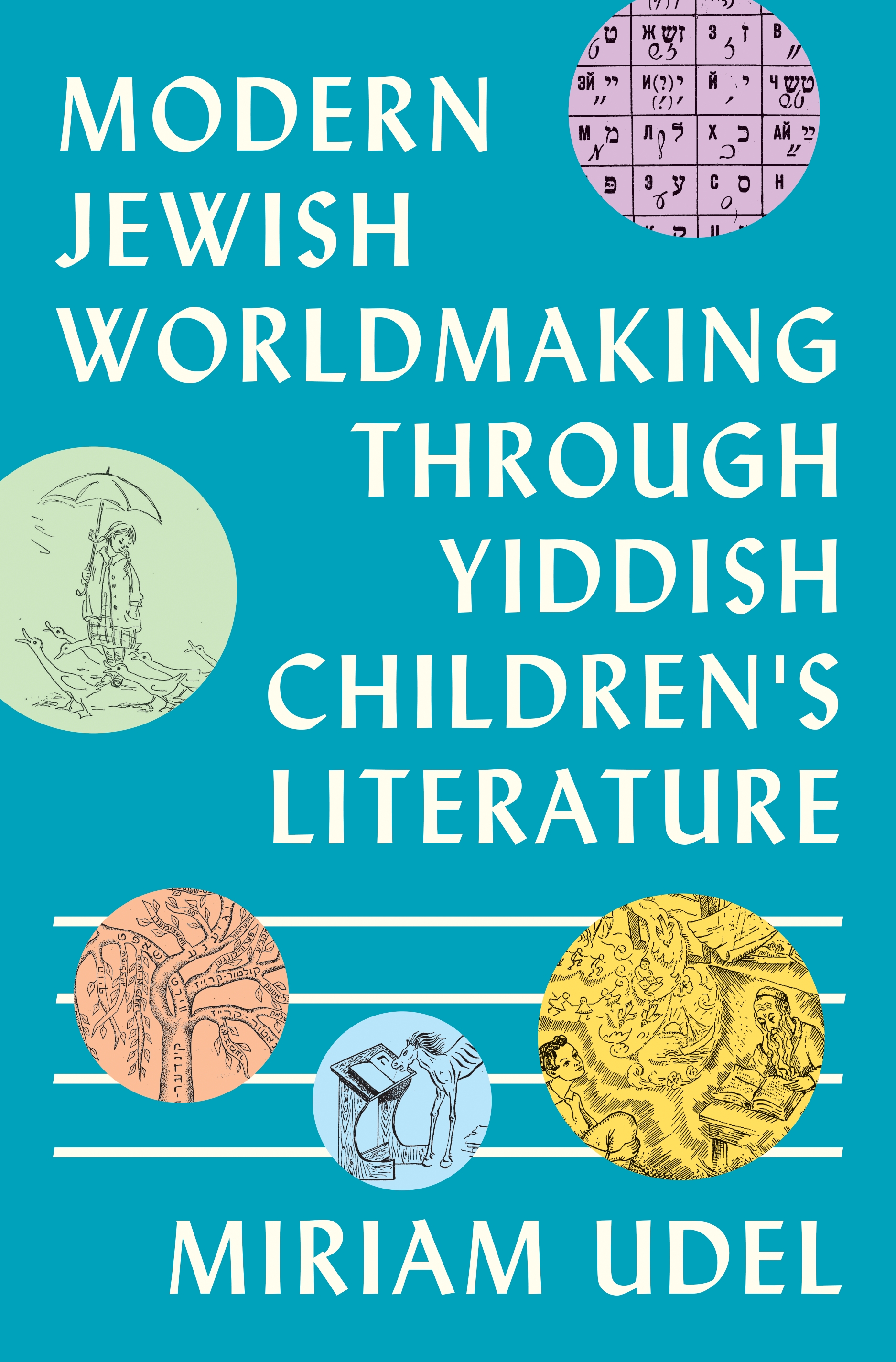Once upon a time, there were stories about birds, puppies and baked goods in Yiddish children’s literature that helped shape a global sense of Jewish identity.
Emory University professor Miriam Udel has zeroed her scholarly eye on the political and cultural significance of those century-old tales for more than a decade. In “Modern Jewish Worldmaking through Yiddish Children’s Literature” — her new book, released Oct. 14 — Udel explains how the stories from a range of political ideologies espoused the importance of compassion and building a better world.
She will hold a free book launch and reading on Sunday, Oct. 19, at A Capella Books in Atlanta. She will also discuss the book in conversation with Marshall Duke, the Charles Howard Candler professor emeritus of psychology, on Tuesday, Nov. 11, at Congregation Shearith Israel.
“These stories still feel incredibly relevant to the contemporary world,” says Udel, an associate professor in German studies for Emory College of Arts and Sciences and the Judith London Evans Director of the Tam Institute for Jewish Studies.
“Common themes running throughout this literature included empathy, democracy education and wealth disparities — and all of these resonate today,” she adds. “This literature was the cultural glue that creates the symbolic world that many Jews at the turn of the 20th century would inhabit.”

Scholars have documented such cultural nationalism in other children’s literature. “Grimm’s Fairy Tales,” for instance, collected Teutonic folk tales before the founding of a German state.
Udel’s focus on the whimsy of children’s stories, such as wild birds refusing to sing until their cousins caged as pets are free, began with similar rigorous scholarship.
She won the National Jewish Book Award in 2016 for her debut book, “Never Better!: The Modern Jewish Picaresque,” which researches how Jewish people encounter the modern world by examining Jewish antiheroes in fiction.
To expand that scholarly analysis into children’s literature, though, she had to translate those stories. She edited and translated more than 1,000 stories and poems published from 1889-1974, the bulk of which were published in the 1920s and 1930s.
The result was her second book, “Honey on the Page: A Treasury of Yiddish Children’s Literature.” The collection was a landmark anthology of tales, most never before published in English. The book won the 2020 Judaica Reference Award, and five of its stories were the basis of an hour-long radio play in Seattle.
Her new book suggests those stories act as a historical archive for understanding the politics and aspirations of Jews, whether they be socialists, communists, Zionists or strict Yiddishists united by the common language.
In “The Birds Go on Strike,” for instance, children see the power of community action when the story reveals that the birdsong is what raises the sun each morning.
Another tale illustrates the power of individual action by sharing how a baker who routinely donated challah and bagels to the needy finds himself saved by a former beggar when their fortunes reverse.
“If you have ever had any part of caring for a child, you know how you’re willing to reach deep into yourself and try to find resources to give them something better than what you were given,” Udel says. “This is a generation of writers who handed the children of our community, which spans continents, a common identity.”
That is what the Brothers Grimm did for European culture, which Udel includes in her first-year seminar on children’s literature and democracy for Emory College students. The class also will study some of the more layered political Yiddish stories in a unit later this fall.
Udel’s next book, a translation of Chaver Paver’s 1935 story collection about an emotionally intelligent mutt adopted by a working-class leftist Bronx family during the Great Depression, is expected to be published next year by SUNY Press. The work already served as the basis for Theater Emory’s 2021 puppet film, “Labzik: Tales of a Clever Pup.”
She is also drafting the proposal for another book, researched during her time as last year’s Chronos Fellow, for a deeper analysis into ways children’s stories and broader Yiddish writing might provide guidance for a peaceful coexistence between Israel and Palestine.
“There are deep cultural scripts in children’s literature,” she says. “If we hope to change the world and have a future better than the present, we should all be interested in its power.”

